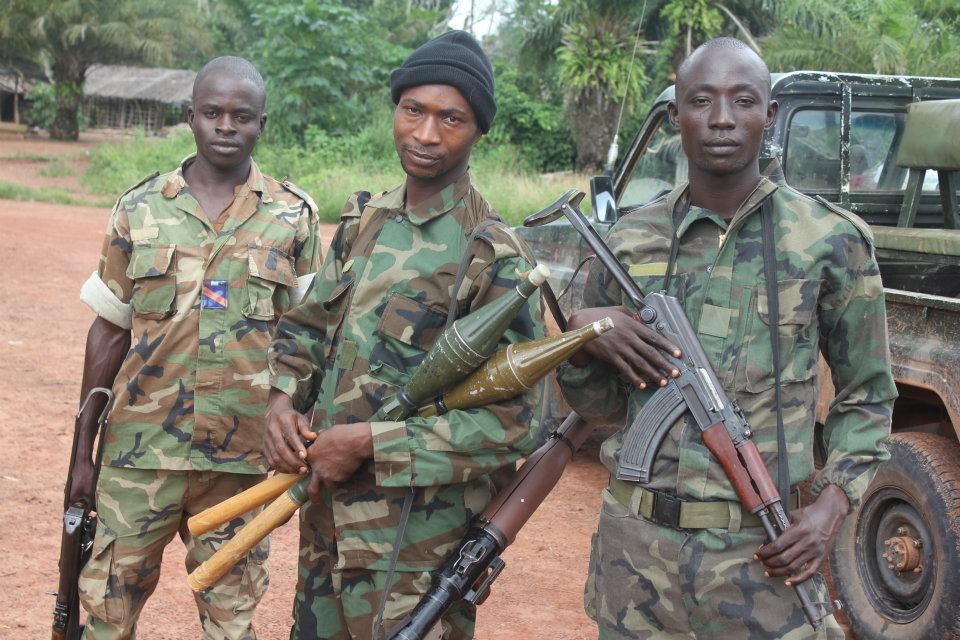Twenty-two people were killed in at least 18 attacks between June and early September, according to the Ministry of Defence statistics. More than half of the victims were soldiers, gendarmes or police.
Initially, the bandits, commonly known in Côte d’Ivoire as ‘coupeurs de route’, laid logs on the highway to halt vehicles before attacking occupants, but witnesses say they are increasingly using AK-47 rifles, grenades and rocket launchers.
“Before, they used tree trunks to stop vehicles, and so lives were spared. But now they shoot to stop vehicles before robbing passengers,” said Moussa Doumbia, a bus driver who travels between the central town of Bouaké and Korhogo in the north.
“It is the yam-harvesting season now, and the bulk buyers are finding it difficult to travel on the northern roads to supply markets in the south. They [highway robbers] operate during the day and at night,” said Doumbia, who has survived two attacks. He explained that it is unsafe to travel after four o’clock in the afternoon.
Political conflicts that erupted with the 1999 ouster of Henri Konan Bédié, a decade of rebellion and the months of fighting that following the disputed 2010 elections have left Côte d’Ivoire awash in weapons. It is unclear, however, how many weapons are held illegally.
The country’s National Commission against the Proliferation of Light Weapons said that 5,105 weapons were surrendered between February and June. Around 9,000 of the 65,000 ex-combatants have been reintegrated into the customs, forestry and prisons departments. The government needs US$17 million for the reintegration programme.
“We know that the majority of the highway attackers are former fighters. Their impatience and the difficulties faced by the DDR [disarmament, demobilization and reintegration] to take them on board are the reasons for this situation,” said Pierre Kouamé Adjoumani, the interim head of the Ivoirian Human Rights League (LIDHO).
“There is also the issue of the ‘dozos’ [armed traditional hunters] who are arrogating themselves the duties of the regular forces. This has yet to be resolved under the security sector reforms plan,” he added, citing financial difficulties in finalizing the DDR.
Ambushes
Three attacks have occurred so far this month, all in one week. One person was killed outside Odienné town in the north, and two others were killed in a separate attack when gunmen sprayed two passenger buses with bullets in Odienné region. In a third attack, a soldier was seriously wounded by armed men who targeted three buses and an oil tanker.
September saw the highest number of casualties. Five bus passengers were killed in an attack in the west of the country, and in the administrative capital, Yamoussoukro, a security patrol came under attack, and two gendarmes and a policeman were killed. In the same month, one soldier was killed when gunmen attacked a vehicle transporting money. The attackers stole 20 million CFA francs ($40,000).
In one of the most spectacular ambushes, armed men in July attacked the entourage of Fidèle Sarassoro, the head of the DRR Authority (ADDR), in Kong, the home village of President Alassane Ouattara. One of Sarassoro’s guards was killed.
“We have raised the alarm over this worrying phenomenon,” said Christophe Kouamé, coordinator of the Ivoirian Civil Society Convention (CSCI). “This is due to the impunity by those who illegally hold arms and the inadequate implementation of the security sector reforms. These contribute to the persistent insecurity.”
But Karnan Soro, the head of the disarmament programme at ADDR, said highway banditry has existed for long in the country, and not necessarily because of the former fighters. “I don’t think it is because one is an ex-combatant that he becomes a highway robber,” he told IRIN.
“If the government can raise the needed resources, there is no reason we can’t integrate the majority of the ex-combatants before the end of the year. The aim is to reintegrate 30,000 former fighters, and the process is under way,” Soro told IRIN, but he could not say how much of the needed $17 million had been raised.
“Terrible Fear”
Still, residents blame the highway robberies on the ex-fighters.
“These are our young brothers who were part of the rebellion,” said Yacouba Bamba, a teacher in Ferké, a locality in the north. “It’s because of them that we can’t travel to withdraw our salaries in Korhogo. They have attacked many of us every end of the month. It is a terrible fear when we travel.”
“There is a 90 percent chance that travellers will come across the attackers. They operate on village roads and, at times, storm the town, firing in the air and then robbing shops and other small traders,” said Roland Kouadio, who lives in Sakassou in central Côte d’Ivoire.
The government has set up a special force to fight the banditry in the commercial capital, Abidjan. The force has also begun operating in country’s central and northern regions. The military and gendarmes have also been deployed on key roads.
“The results of the fight against these bandits are encouraging. Around 10 of them have been killed. The government is progressively deploying forces across the country,” Paul Koffi Koffi, the defence minister, told reporters recently.
aa/ob/rz
This article was produced by IRIN News while it was part of the United Nations Office for the Coordination of Humanitarian Affairs. Please send queries on copyright or liability to the UN. For more information: https://shop.un.org/rights-permissions




